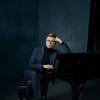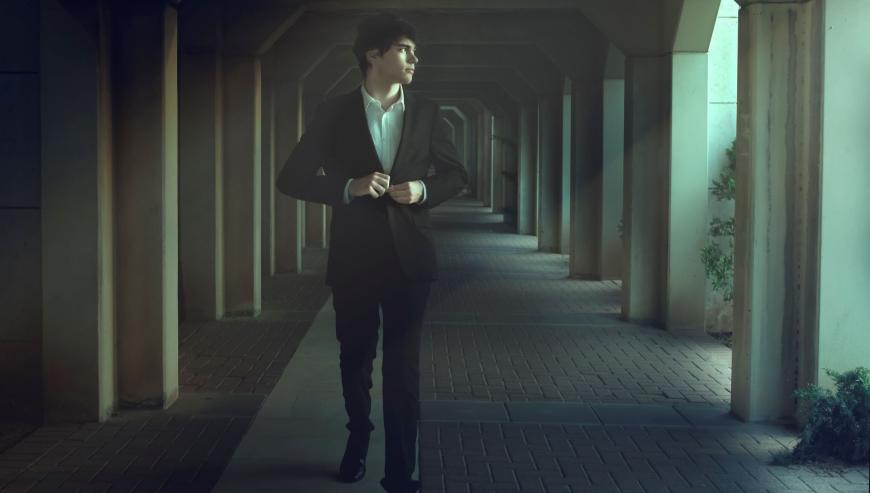
Not much of a social media user, 22-year-old piano phenom Tom Borrow seems like a throwback to a bygone era. In his spare time, he listens to Russian conductors such as the late Gennady Rozhdestvensky and Nikolai Golovanov. There are also long plane flights where Borrow might be found reading the novels of E.T.A. Hoffmann.
But his performances are very much in the here and now. A protege of Murray Perahia, Borrow made his debut with The Cleveland Orchestra in 2021, which was described by music critic Zachary Lewis as “sensational. … Borrow stands out with a touch that’s both light and powerful, and supremely incandescent.” And on Oct. 1, the pianist makes his West Coast recital debut at UC Berkeley’s Hertz Hall, presented by Cal Performances. [Editor’s note: On Sept. 26, Cal Performances announced that Borrow’s program would be rescheduled, with Jeremy Denk stepping in for the Oct. 1 date.]
Born in Tel Aviv to a British father and Israeli mother, the London-based Borrow began studying piano at age 5 at the Givatayim Music Conservatory and continued at the Buchmann-Mehta School of Music at Tel Aviv University. Named a BBC New Generation Artist in 2021 — an honor that led him to perform with all the BBC orchestras and on multiple BBC broadcasts — Borrow has also won every national piano competition in Israel.
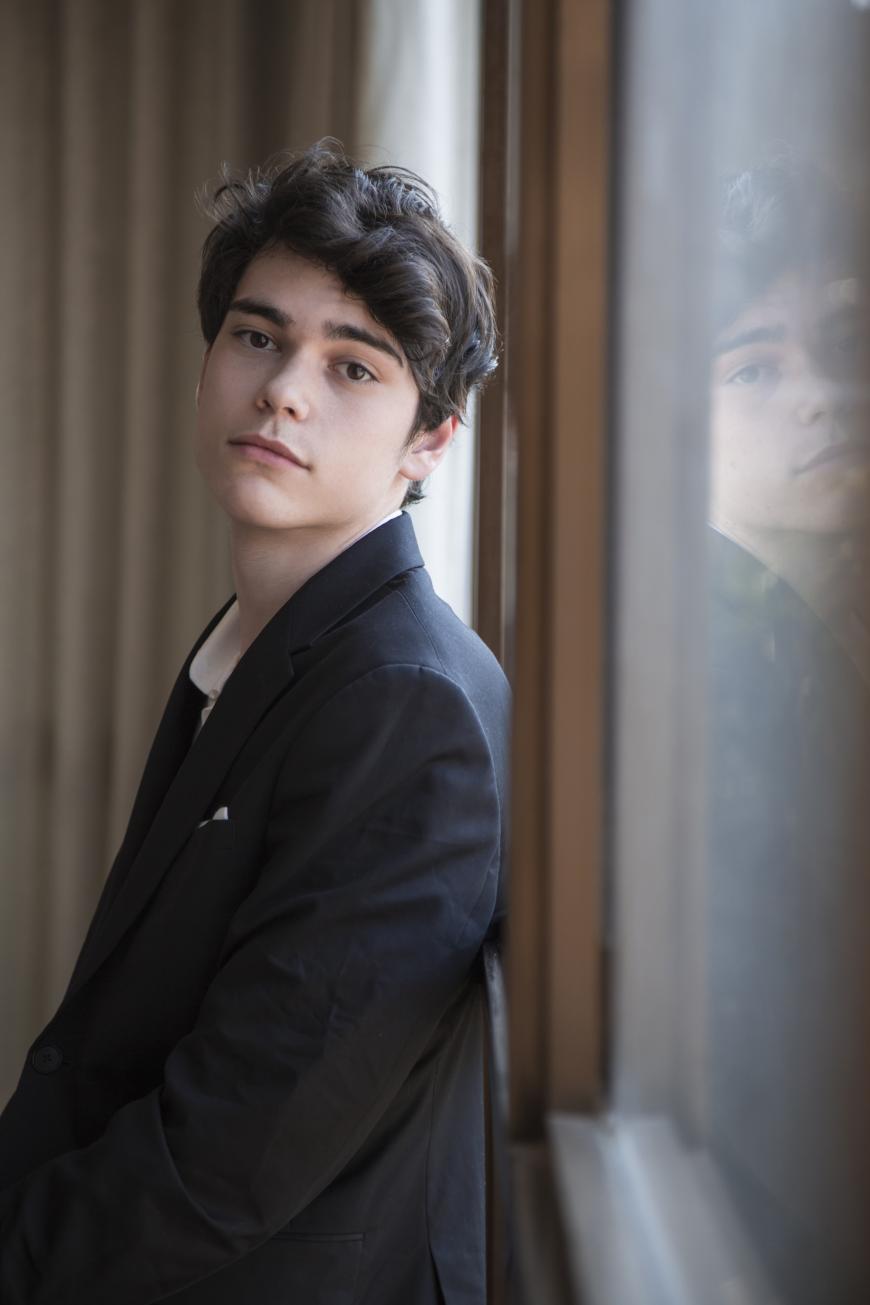
And while many a musician has been called on to replace a soloist, Borrow was asked in 2019 to step in for an ailing Khatia Buniatishvili in a series of 12 concerts with the Israel Philharmonic Orchestra and became an overnight sensation. Invitations from major orchestras soon followed, as the pianist then performed with, among others, the Czech Philharmonic, the São Paulo Symphony Orchestra, and the Baltimore Symphony Orchestra. He’s also appeared on the chamber music and recital circuit, playing at the Verbier Festival in Switzerland.
In 2021, Gramophone magazine named Borrow a “One to Watch,” and this year, the pianist snagged the Terence Judd-Hallé Award.
SF Classical Voice caught up with the globetrotting musician by WhatsApp from London, and he discussed a range of topics that included his Cal Performances program, his aversion to social media, and whether or not he gets nervous before taking the stage.
How important has Murray Perahia been to your career?
Murray has been a mentor for me [and was] back in Israel in the crucial teen years. To this day, he has a program where he holds quite a small class of students in the Jerusalem Music Centre, and he would come every so often throughout the year and during the summer. It was a program of basically master classes, [and] we might have been roughly 10 students.
The unique thing about Murray’s teaching is actually his approach, [which] is very different and probably cannot be found from any other musician, I think it’s safe to say. He would basically teach us Schenkerian theory, with quite a unique way of analyzing a piece of music. He would arrive at certain conclusions and decisions regarding interpretation and use it as a tool to grasp pieces in a larger sort of mode. This is something unheard of, [and] it’s unique to him.
You’ll be making your West Coast debut at Cal Performances soon. Let’s talk about the works you’ll be playing: Book 1 of Claude Debussy’s Images, several Frédéric Chopin etudes, a number of Sergei Rachmaninoff preludes, and Sergei Prokofiev’s fiendishly difficult Piano Sonata No. 6. Why these choices?
What all the pieces have in common is the fact that I love them. This is a ridiculous answer, but first and foremost, these are pieces I love, and I would very much want to share them with an audience.
Rachmaninoff and Prokofiev go very well together. They are both surprisingly recent Russian composers but, of course, really quite different from each other. Rachmaninoff is more nostalgic in mood as well, and for his compositions, for his time, it was relatively conservative writing.
Prokofiev is much more modern, but nevertheless he’s using quite old templates, the templates of classical form. They were alive at the same time and came from the same culture. Chopin and Debussy I’ve paired before, but I don’t know what exactly makes them work together. So, Debussy and Chopin is one chunk; Rachmaninoff and Prokofiev is another chunk. They [all] complement each other and give a nice variety.
How has being a BBC New Generation Artist impacted your career?
The BBC was quite helpful and a meaningful scheme for me. It’s now coming to an end — a scheme of two years — but two very full years where I got to play with many of the BBC orchestras, including in the Proms, which was an unbelievable experience. [The honor] gave these concert opportunities, but also, it put a large emphasis on recording. Each BBC artist is asked to record quite through many sessions throughout the year [and] with quite a lot of time pressure.
They’re not usual studio recording sessions, where you have much time to reflect, do many takes, break up the piece, take your time, and almost indulge yourself in cutting up the pieces. It’s quite different [because for the BBC] we usually get a short time frame and record a lot of repertory. It felt very educational. It’s easy to sink into this self-indulgence when you’re recording in the studio. That can be ineffective. But the BBC recordings teach you to manage with the time you have. In a way, it prepares you for the real world — because no one can really spend as much time as they want.
How is it possible that you won every national piano competition in all of Israel?
Because Israel is a small country, there are [only] a few national competitions, and it’s very natural to go to most of them. Everyone really goes everywhere, especially the musician community. It’s hard not to know everyone. Living in London is a change, [and] I do miss the family feeling [in Israel], especially in the music world, where everyone is acquainted with everyone. It definitely has its plusses, and it’s a nice environment to be part of and to be in.
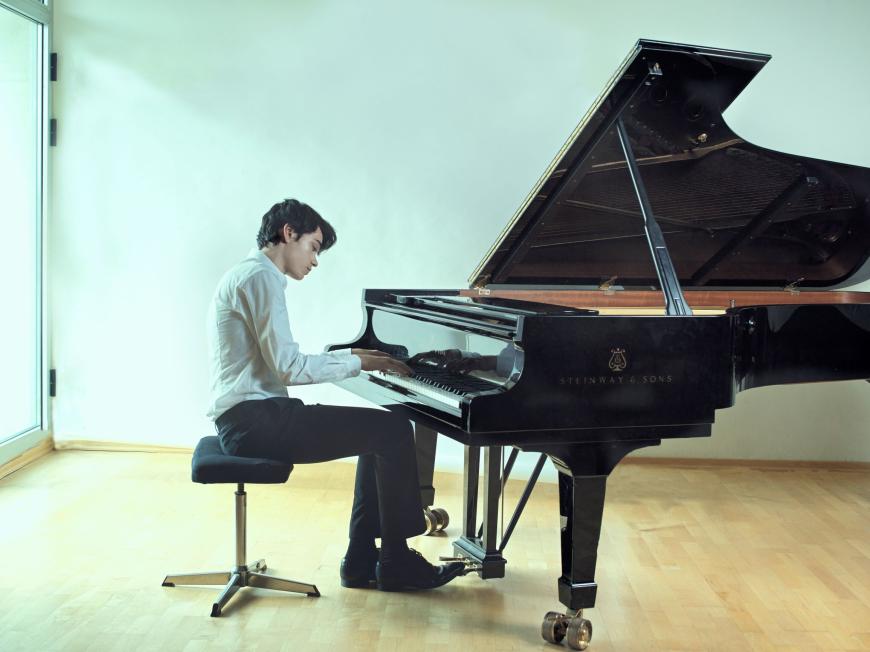
How do you respond to rave reviews without letting them go to your head? After your concerts with the Israel Philharmonic Orchestra, the chief music critic of the Israel Broadcasting Corporation, Yossi Schiffmann, ended his review with the words “Tom Borrow is already a star.”
I actually don’t read the reviews, but of course, maybe a friend would send me a review. If it’s in a different language, in whatever country, France, for example, they translate it for me. It’s hard not to be exposed to all of this, to be completely unaware of it. But no, usually I don’t go out of my way to read them. I forget that that’s even a thing sometimes.
I have my own review, and generally, it’s critical, as one should have toward oneself. But it’s critical in a way that will hopefully send me forward. It’s very easy to be too critical and too negative, for sure. But the work process and the learning process — they never stop progressing. There’s always things to do. And that’s the beauty of the art; that’s why people do it for a lifetime.
Do you get nervous before a performance, and if so, how do you deal with it?
“Nervous” is a weird word. I don’t know how to put it exactly, [but] I believe everyone feels what you call nervous. I don’t know if that’s the best word, and no one’s found a replacement. To some extent, everyone feels something. Usually I have this feeling of excitement simply because it’s impossible to know what will happen, regardless of preparation.
You’re diving into the unknown. And because it’s unknown, and you’re going to find out only when you dive in, I don’t do anything about it. Tampering with the unknown is dangerous.
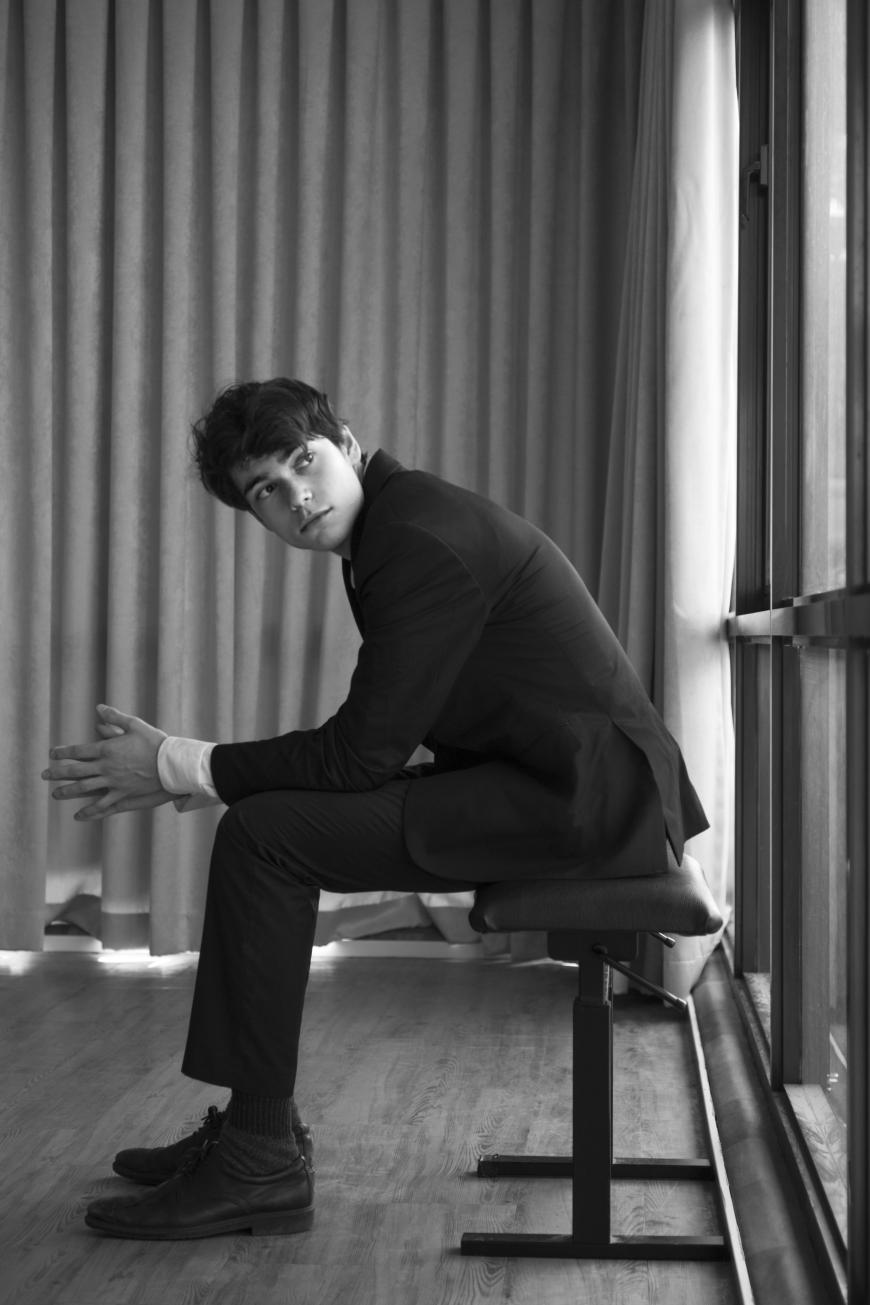
You’ve said that reading novels on long plane flights helps with your music. How so?
When I’m not practicing, in a way I am practicing simply because breaths of fresh air complement a work in progress as much as [practicing] the work does. If it was just one or just the other, I think it would have an equal negative effect. In this sense, for example, I don’t feel so bad when having a long flight and a lot of time supposedly wasted. I don’t mind it at all. It gives me a chance to clear my mind, which, once being filled up again, is somehow in better form.
That includes reading. I like to read, and these days I’m juggling between many things, but the last thing I was reading was Hoffmann. I was also playing [Robert] Schumann because he based much of his music on reading Hoffmann and was known to love this novel The Life and Opinions of the Tomcat Murr, which was considered to be an important book for any Schumann player. I long ditched the Schumann and was left with Hoffmann.
Now I’m reading Animal Farm by George Orwell. In a funny way, I don’t know why, but it feels like the Prokofiev sonata at times. That’s a nice combination now. I’m liking it.
For a Gen Zer, you don’t have much of a social media presence. You do have a website but not an Instagram account, where so many classical musicians connect with their fans. Why not?
I must confess that it’s very un-Generation Z of me, but in a way, I feel like I was born in the wrong era. Of course, every era has its [drawbacks], and I’m not saying one is objectively better than the other. I guess it’s hard to imagine what it would be like living in a different era, [but] whatever era I would be born in, perhaps I would tell you the same.
The whole immediacy that’s playing a big role — a star role — in today’s times I sometimes find a bit difficult, a bit unnatural for me. I do have a Facebook page, and I use it for professional means and not more than that. I can understand the practicality behind [social media], but I don’t share the attraction [to it]. It’s some pixilated distortion of what’s going on. It’s not for me. I’ve met people who think as I do. Then again, I have nothing against anyone who does use it.
What about playing contemporary music?
I’m not closed-minded in the sense that I do not niche myself or place myself in a limited range of repertory or periods of music. I’m quite open to playing pretty much anything — anything that I find beautiful. If I’m attached to something, if some work speaks to me, I would play it regardless of what year it’s written. People always talk about contemporary [music], but I don’t care if it was written 500 years ago or yesterday. If I’m attached to it, I’ll play it.




